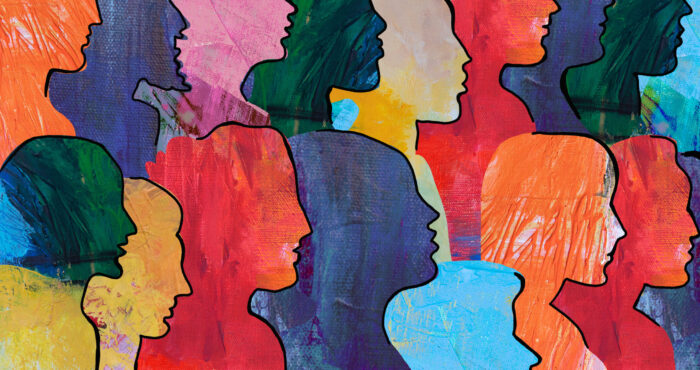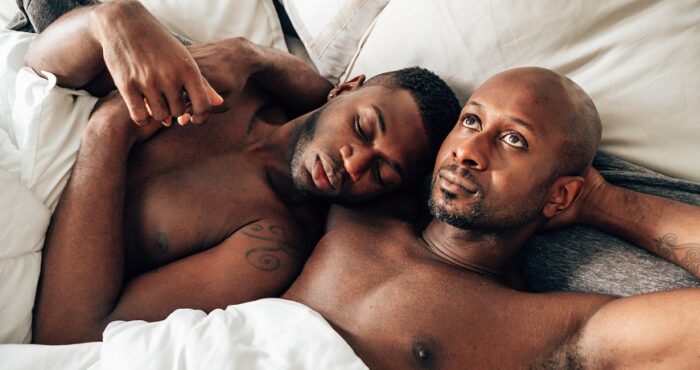San Francisco’s famed Pride parade has been canceled.
2020 marks the 50th anniversary of the march, half a century of banners and floats, dancers and drag queens–but this year, in the face of the novel coronavirus, the rainbow-clad masses have been asked to stay home. Fred Lopez, executive director of San Francisco Pride, told the Guardian that organizers did not arrive lightly at the decision to cancel the events of what has historically been one of the largest Pride parades in the world, but they found it in the best interest of the community during this public health crisis.
The Bay Area is far from alone in this heart-breaking situation. Even New York City–where Pride began in commemoration of the Stonewall Riots–has canceled their march and all other in-person events for the month of June. Instead, NYC’s Heritage of Pride and over 300 other organizations have endorsed the idea of a “Global Pride”, a virtual version of the celebration to be broadcast worldwide on June 27. It’s a far-cry from the real thing, though, and many of us are unpacking and grappling with everything this year’s new reality will mean for the queer community.
I’ve sat with this information for a long time now. When I first saw the news, I (sheltered in place with my immunocompromised partner) immediately thought, quite plainly, “good.” Mass gatherings threaten to spread the virus very broadly, multiplying the odds that it could get closer to me and my loved ones. So I was grateful, and I didn’t give it a second thought.
Then my friend shared the announcement on Facebook, expressing their devastation. That’s when it really sank in, like, “Oh yeah. This is a really big deal for a LOT of people.” I realized that my household consists of four other queers who hadn’t mentioned a single thing about Pride. So while we were sitting around the living room, I sort of just blurted, “What are we doing for Pride?” and all I got were blank, blinking eyes and an awkward pause.
“I don’t know,” my roommate finally said with the look of someone who had walked into a room and immediately forgotten what they were there for.
I’m here and I’m queer… What do I do now?
Stumped, I asked the Facebook hivemind what in the world they were planning to do, if anything, and my friends’ responses were both helpful and emotional. They highlighted all the feelings I had initially ignored.
My friend Cam had traveled to San Francisco to attend Pride twice before she moved to the city in 2012, and has celebrated Pride in Dolores Park every year since. Now, though, she will resort to hanging the Rainbow and Bi flags outside her fire escape. “I’m also probably going to drink a metric ton of wine and wear a fun outfit,” she said.
I like the idea of dressing up at home, and even dressing up the home itself. When you’re stuck in the same place for days on end, it’s not a bad idea to change up the scenery, and Pride is a good time to go all out with any team spirit you have. You could throw a small party in your household, maybe with some themed foods (I know Safeway often has some very delicious individual slices of rainbow-layered cake…), and take some pictures to share online if you’re the social media type. If you have some housemates who’d be interested, you could get together to view any number of virtual events that organizations are planning to offer. Anything to feel less alone.
That’s the biggest problem most of the community is affected by right now. Self-isolation has been very difficult, and some of us are dealing with a heavy loneliness, especially when we think about the time of year. Another friend, Mags, who usually travels into the city from Oakland to attend events, is at a complete loss. Summer festivals like Trans March and the Up Your Alley Street Fair– festivals made quite specifically for queer people–have been the rare opportunities for Mags to safely be a part of the community in public, to “feel comfortable existing as a radical act.”
“To look around a room and not feel alone, to walk outside and feel baseline comfort and validation, is a powerful feeling. To not have to guess, or hide one’s self, but rather be comfortably queer is intoxicating, cathartic, and a source of genuine joy, in particular at Trans March.”
Mags then emphasized to me the pain of touch starvation stemming from the lack of physical fellowship, and the devastating hole it leaves to know there won’t be a sea of queer bodies, a “shared sensation and skin contact,” to be a part of this year. Though Mags has moved away from celebrating the big Sunday Pride event due to the increasing commodification and police presence, it is a troublesome fact that the pandemic has rid us of even the choice to attend or not attend our community’s revelries.
Cam expressed her anguish over this as well. “I’ve been able to celebrate Pride alongside people every year, but this year we have to celebrate alone, or mostly alone, which just sort of goes against my core. Pride is meant to be celebrated with people.”
In the flood of rainbows and the familiar phrase “gay pride,” it’s easy for people to forget that there’s more than just a G in LGBT+. Large-scale, physical, pride-based celebrations–especially mobilizations like Dyke March and Trans March–offer a chance for people to assert the aspects of their identities they might regularly need to hide, or aspects that simply disappear from the radar in day-to-day life.
Pride is particularly important to my friends Cam (bisexual) and Mags (trans/genderfluid Dyke), and also to my married, pansexual elder, Melinda. She’s been in a relationship that’s often perceived as completely heterosexual “for umpteen years” and hates how much that defines her sexuality to others because there’s rarely ever a reason to mention otherwise.
“June is when I have lots of opportunities to remind people that there’s more to me than meets the eye without it being awkward and weird,” she said, discussing her bereftness. This year, she is unable to carry on traditions stemming back to her first NYC Pride parade in 1973.
Like Mags, Melinda attended San Francisco Pride less and less as the years turned the commemoration of a riot into a “corporate extravaganza,” but these out-and-proud events still hold a special place in her heart. She would normally be able to spend time there with people she doesn’t often see, and one of her biggest traditions is attending Trans March with her son. The only other time she’s been unable to do that one was the time her son was out of town, but they did manage to call and tell her, “Mom, guess where I am. I’m in front of the Stonewall!”
In the stead of her beloved traditions, Melinda plans to watch the Trans March virtual event, and hopes to be able to do some sort of socially-distanced friends-and-family get-together in the backyard. Even though you can’t get too close, being in the same relative vicinity as the people you love, to be able to see them and share some sort of space in the world, is a gift.
Mxter Brightside
So many of us are, as Melinda put it, “bereft” at the loss of our usual opportunities. We feel robbed. Now, I’m always one to look for the bright side, or, if I can’t find one, to do the best I can with the hand that I’ve been dealt.
With all the canceled Pride events, organizers have rushed to the popular Pandemic Plan B of moving things online. SF Pride’s website touts its program of both live and pre-recorded video featuring speeches and performances like you might see at its in-person Main Stage. Trans March is planning their own virtual event for livestream on June 26, while the Dykes Go Digital on June 27.
All over the world, organizations are preparing to go online, allowing anyone with internet access the ability to attend many Prides at once if they wish. So though it may seem like an absolute bummer not to experience these things up close, the plus side of virtual events is that anybody, anywhere, has the potential to tune in. People who usually might not be able to attend SF Pride, like currently closeted folx and people in other countries, have the unprecedented opportunity to take what’s essentially a front-row seat.
Of course, after talking with my queer fellows over the Internet, I recognize the medium’s limitations. I know that these bright-side approaches can’t possibly work for everyone. Some things just aren’t so easy to “get over.” Many of our plans and rituals have been disrupted, some rendered completely impossible to substitute. Most of the options offered feel like cheap consolation prizes compared to everything we’ve had before and everything we expected of this year.
My mind has the tendency to spiral until it ends up circling in the same tight loop of distress. The one thing I can always rely on to slowly pull me out of it, to keep me moving forward, is something my lovely, trans-friendly psychiatrist advised: Take those feelings, hold them for a moment, then let them go in the best way you can.
Have pride, make the most of it, but know that it is real, valid, and healthy to grieve as well.
I’ve finally decided on my Pride plans.
For 2020, I will be lighting the candles on my altar not only for my queer friends and family whose spirits have transcended this Earth, but also for all the broken hearts and stolen opportunities. I will light a candle for this moment, to let this difficult year pass as well, and I will dream pleasantly of a new future we can build together.
“As we work through these difficult times together as a community, we must remember that Pride is not just about a specific month or weekend in June. Los Angeles’ LGBTQ+ community lives and breathes Pride every day.” —CSW Executive Director Madonna Cacciatore.









